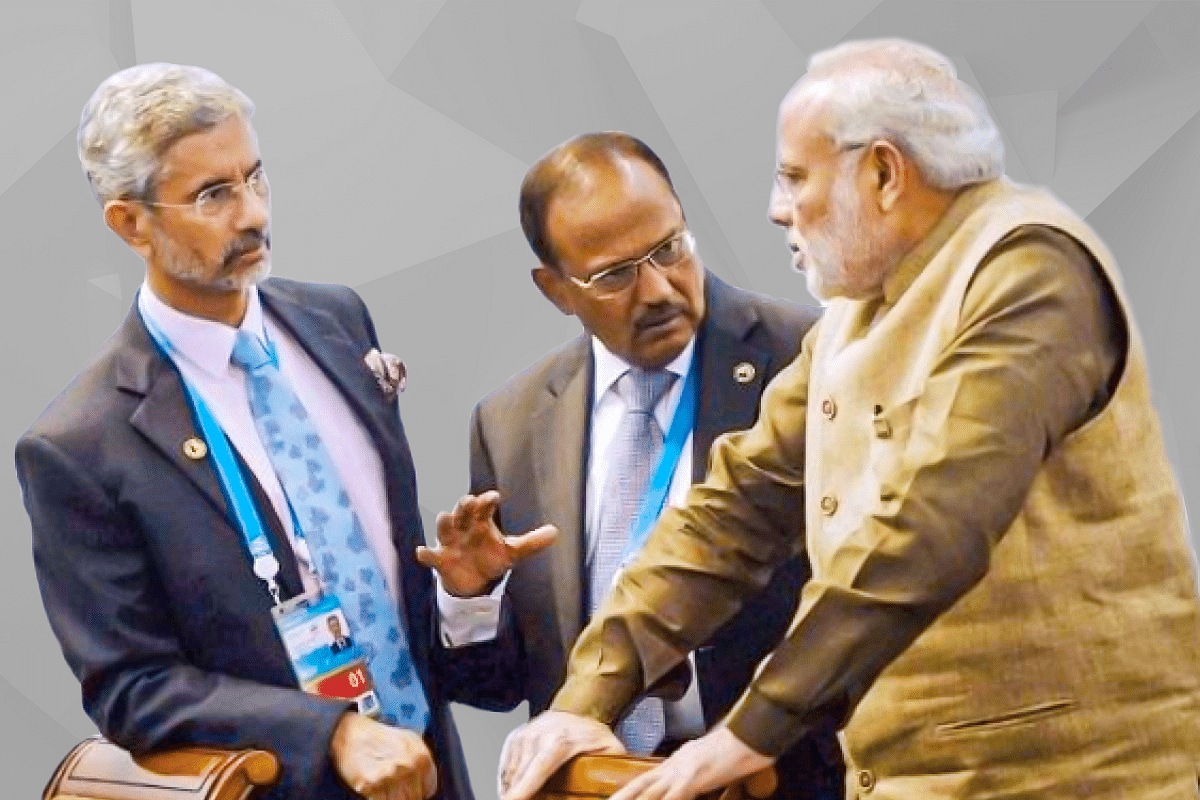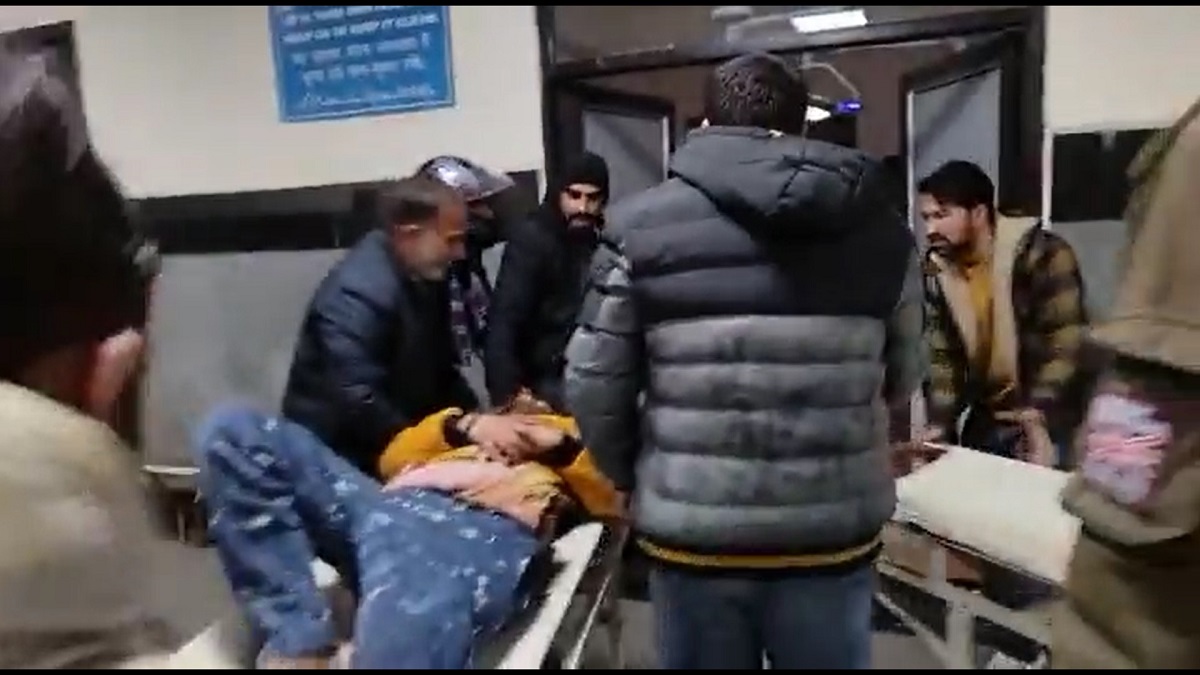Friends, you’re invited to share your views boldly in the comments section below, as responsible citizens of India. If you believe it’s time for stronger, decisive action, express your support for the Modi government. The time to speak up is now. — Editor
MS Shanker
It’s an axiom now: Jammu & Kashmir cannot know peace under the rule of the Abdullahs and their National Conference. Decades of political opportunism, duplicity, and appeasement have left the Valley vulnerable to both internal subversion and cross-border terrorism. The recent massacre in Pahalgam, where 28 innocent tourists were slaughtered by Pakistan-backed terrorists, isn’t just another ghastly incident—it’s a jarring reminder that political misgovernance in Srinagar has always come at the cost of Indian blood.
Let’s call it what it is: the Abdullah dynasty has long thrived on a toxic cocktail of religious identity politics, soft separatism, and selective outrage. For far too long, their leadership has fostered a culture of grievance rather than governance, encouraging radical narratives under the guise of preserving Kashmiri identity.
Nehru’s Blunders Still Bleed India
But to understand Kashmir’s present, one must begin with its catastrophic past—especially the follies of Jawaharlal Nehru. It was Nehru’s misguided idealism and personal entanglements with Kashmir that led to the unilateral declaration of a ceasefire in 1948, just when Indian forces had gained the upper hand. That decision allowed Pakistan to retain control of what we now call Pakistan-Occupied Kashmir (PoK).
Even worse was his inexplicable decision to internationalize the Kashmir issue by dragging it to the United Nations—thereby giving Pakistan a diplomatic foothold it has exploited for 75 years. And let’s not forget Articles 370 and 35A, inserted to appease Kashmiri Muslims but used to undermine Indian sovereignty, block national integration, and foster a sense of separatist exceptionalism. The fact that Nehru, a self-proclaimed Kashmiri Pandit, enabled these clauses is a historical irony we can no longer ignore.
After the Pulwama attack in 2019, which killed 40 CRPF personnel, India retaliated with airstrikes in Balakot. But the Pahalgam attack proves the threat persists—and has perhaps evolved. These are not just acts of random terrorism; they are coordinated, state-backed massacres designed to destabilize India’s democratic project in Kashmir and dissuade national reintegration.
The world is finally taking notice. Condemnations have poured in from the U.S., Russia, and Israel, with leaders such as President Donald Trum, President Vladmir Putin, and Prime Minister Benjamin Netanyahu voicing unequivocal support for India’s right to defend itself. This is no longer a regional issue—it is a global security concern.
The abrogation of Article 370 was a long-overdue constitutional correction. But it cannot remain a symbolic gesture. The Supreme Court, too, appears to have committed the blunder by directing the Centre to conduct elections in J&K by September 2023, though a democratic imperative. The apex court should understand the security matters come under its domain, but to an elected Legislature as per the Indian Constitution. Yet, that transition cannot mean a return to the National Conference or PDP-era politics that emboldened radicals and marginalized nationalists. Restoring democracy must not mean resurrecting the same failed dynasties.

The NDA government under Prime Minister Narendra Modi has repeatedly declared its intent to reclaim PoK. The time for strategic ambiguity is over. The Pahalgam attack is the tipping point. If not now, when?
Any decisive move on PoK will unsettle China, which has invested heavily in infrastructure projects there through its Belt and Road Initiative. But Beijing’s objections must not paralyze Delhi’s resolve. India’s rise as a military and economic power demands a new realism—one where strategic interests trump diplomatic niceties.
Supporting Baluchistan, Isolating Pakistan
India must also consider supporting Baluchistan’s quest for independence. Baluch leaders have consistently sought India’s moral and strategic backing to end Islamabad’s brutal repression. A truncated Pakistan, stripped of PoK and Baluchistan, would be less capable of exporting terror and more focused on managing its internal collapse.

And if Bangladesh under Sheikh Hasina—or any future leader—tilts towards radicalism or starts wagging its tail at India under foreign influence, Delhi must be prepared to recalibrate that relationship too. Post-1971 gratitude cannot be a blank cheque.
The World Must Understand: Pakistan Is the Problem
No, India is not a war-mongering nation. But there is a difference between warmongering and self-defense. Pakistan is a rogue state that harbors every variety of jihadist terror—from Lashkar-e-Taiba to Jaish-e-Mohammed. These groups aren’t just anti-India—they’re anti-humanity. The world can no longer afford to look away.
Even the Organisation of Islamic Cooperation (OIC), historically hostile to India, is showing signs of fatigue with Pakistan’s terror games. Barring a few outliers like Iran, the Muslim world is waking up to the dangers of state-sponsored jihad.
Modi Must Strike—Decisively, and Without Apology
Prime Minister Modi’s decision to cut short his UAE visit and rush back to Delhi shows the gravity of the situation. Orders have reportedly been issued to Home Minister Amit Shah and the Army Chief to take immediate stock in Kashmir. This is no longer about routine “surgical strikes.” This must be a campaign to dismantle the ecosystem of terror at its roots, in Pakistan.
The Pakistan Army chief’s recent statement, reviving the Two-Nation Theory and questioning Hindu-Muslim coexistence, is not just provocative—it is genocidal rhetoric. Such utterances prove once again that the ideological foundation of Pakistan is incompatible with pluralism, peace, and progress.
India must act. This time, not just against terror camps, but against the Pakistani military-intelligence complex itself. ISI safe houses, terror launch pads, and army installations that aid jihadi incursions must all be on the radar. As the U.S. did with ISIS and Osama bin Laden, India must conduct precise, covert operations to eliminate its most-wanted enemies. No mercy. No tolerance.
The Countdown Has Begun
India has waited too long, bled too often, and compromised too much. The era of strategic restraint has served its time. The world expects a response, but more importantly, Indians demand one. And it must be swift, sweeping, and final.






